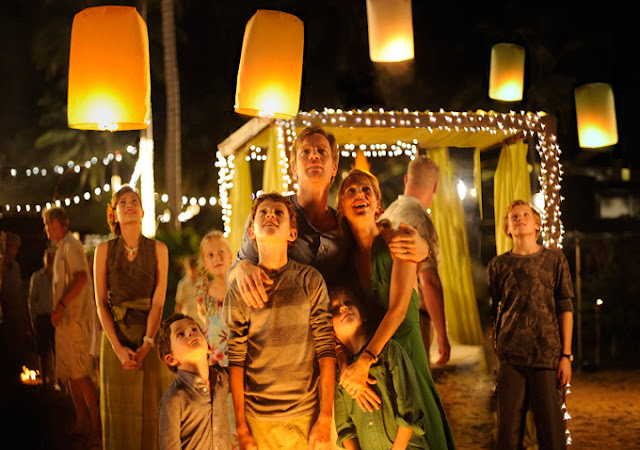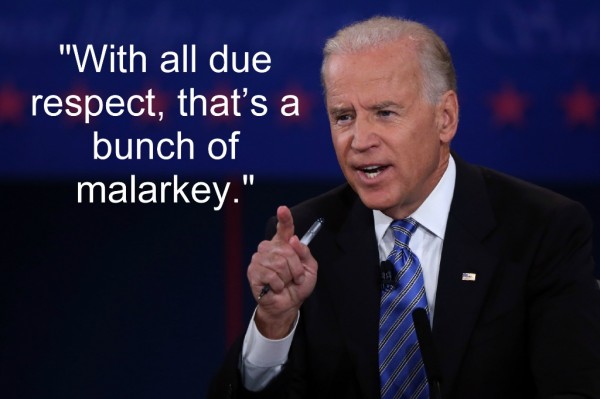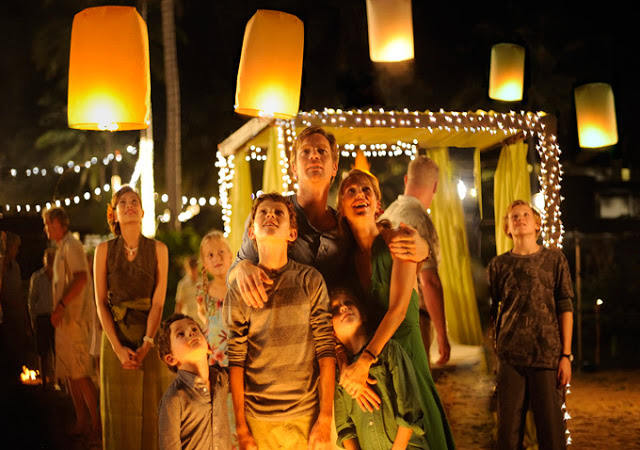Written by Lady T, originally published at The Funny Feminist.
So this is a trailer for the upcoming film, The Impossible, telling the story about the 2004 tsunami:
There are a few title cards in the trailer that provide the necessary background for the story. The trailer helpfully tells you, “In 2004, tragedy struck southeast Asia.”
However, I don’t think those title cards are specific enough. I’d like to revise those title cards so they read, “In 2004, tragedy devastated entire nations, but we’re going to focus on one white family that was on vacation there.”
The Impossible is based on a true story of a real family that was separated during the tsunami and eventually reunited, each family member miraculously surviving. I can easily see why this story would appeal so much to filmmakers. “Family separated, in peril, in a devastated nation that is completely foreign to them” is such a great hook that it’s practically Captain Hook. Who wouldn’t be interested in the story of a family who have to survive in a country that isn’t their own?
On the other hand, this is a real-life tsunami that affected entire nations, that devastated the lives of the citizens who lived there, and the first prominent film about the tragedy is about white people who were staying at a hotel?
 |
| The family in The Impossible |
Landon Palmer at the Culture Warrior has more to say on this:
“There is no reason to say that this experience wasn’t any less traumatic and devastating for those visiting (regardless of their particular race) than the inhabitants (once again, regardless of their particular race) of any of the affected nations. The problem with The Impossible trailer isn’t the depiction family’s experience of the tragedy itself, but its implications about what happens when, say, the film ends. While watching the trailer for the first time, an image kept appearing in my head of an exhausted, scratched-up family sleeping comfortably on a plane returning them safely to their home of origin. Being able to survive and then leave a tragedy is altogether different than having everything that is familiar, including one’s home, fall apart before your eyes. However, years of uncertain reconstruction and rehabilitation doesn’t fit the formula of a Hollywood ending quite like a welcome return to a home far, far away from moving tectonic plates.”
Or, you can read a briefer, much more blunt article at 8Asians here, titled “The Impossible Trailer Features Pretty White People Surviving Indonesian Tsunami.”
There are some who might say that one can’t judge a film before seeing it, but to quote our illustrious vice-president, that’s a bunch of malarkey. The purpose of trailers is to market the film and let viewers decide whether or not they want to see it. If a person does not want to see The Impossible because they don’t want to see, as my friend put it, “the tsunami from the perspective of the 1%,” that is a legitimate reason to not see the film.
 |
| You tell ’em, Joe. |
As for me, I will probably see The Impossible. Naomi Watts scored a Best Actress nomination for the part , and I’m a huge Oscar fan who likes to see as many nominated films as possible from the Picture, Director, Acting, and Screenplay categories. The film also looks beautifully shot. Who knows? The Impossible could be a legitimately good movie.
Still, I can’t help but feel that the real impossible task is making a movie about tragedies that affect non-white people and expecting the film to get the same attention as one that stars Naomi Watts and Ewan McGregor.
———-
Lady T is a writer with two novels, a play, and a collection of comedy sketches in progress. She hopes to one day be published and finish one of her projects (not in that order). You can find more of her writing at www.theresabasile.com, where she picks apart entertainment and reviews movies she hasn’t seen.

agreed. i think they switched the race to market it here in US. and that’s devastating. the crew, director and writer are all Latino. smh
I was nagged into watching this film with some family members, and I ended up walking out. While the acting was good, I found it very problematic that it was centered around rich white people who didn’t have to deal with the long-term consequences, and additionally I just found it very disturbing. I would not recommend this film, unless you’re willing to overlook a bunch of problematic content and some gore for the sake of Naomi Watts’ good acting.
Totally agree with your assessment of the problems here. I saw this trailer when I went to see The Hobbit, and I was like Are you freaking kidding me?
BTW, the older comments should show up soon … we’ve just switched to Disqus, and everything is still screwy.
The director is Spanish, from Spain. The real family the story is based on were Spanish. The film is being marketed very, very heavily in Spain, though I’m sure you’re right that the protagonists were made blond and British to sell the film in the US. I’m embarrassed and upset at the insensitivity of a film about tourists from a rich country suffering temporarily among so much death, destruction and long-term suffering.